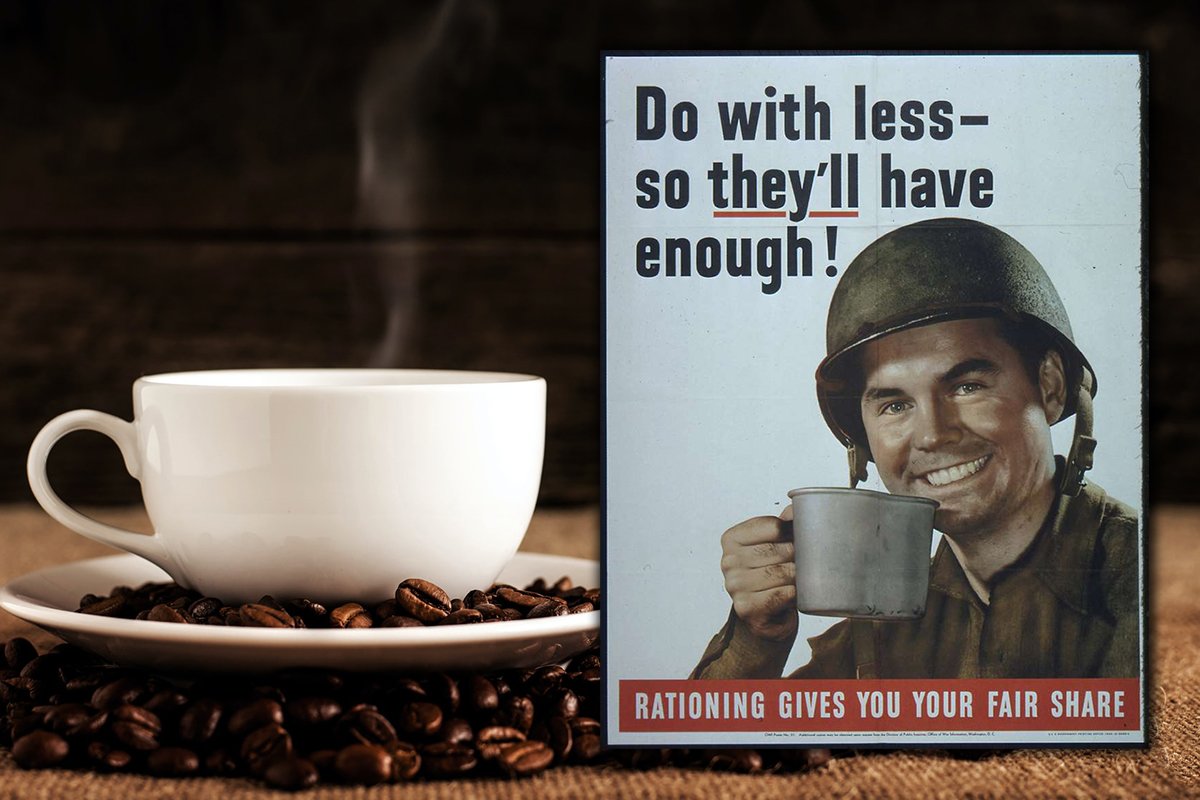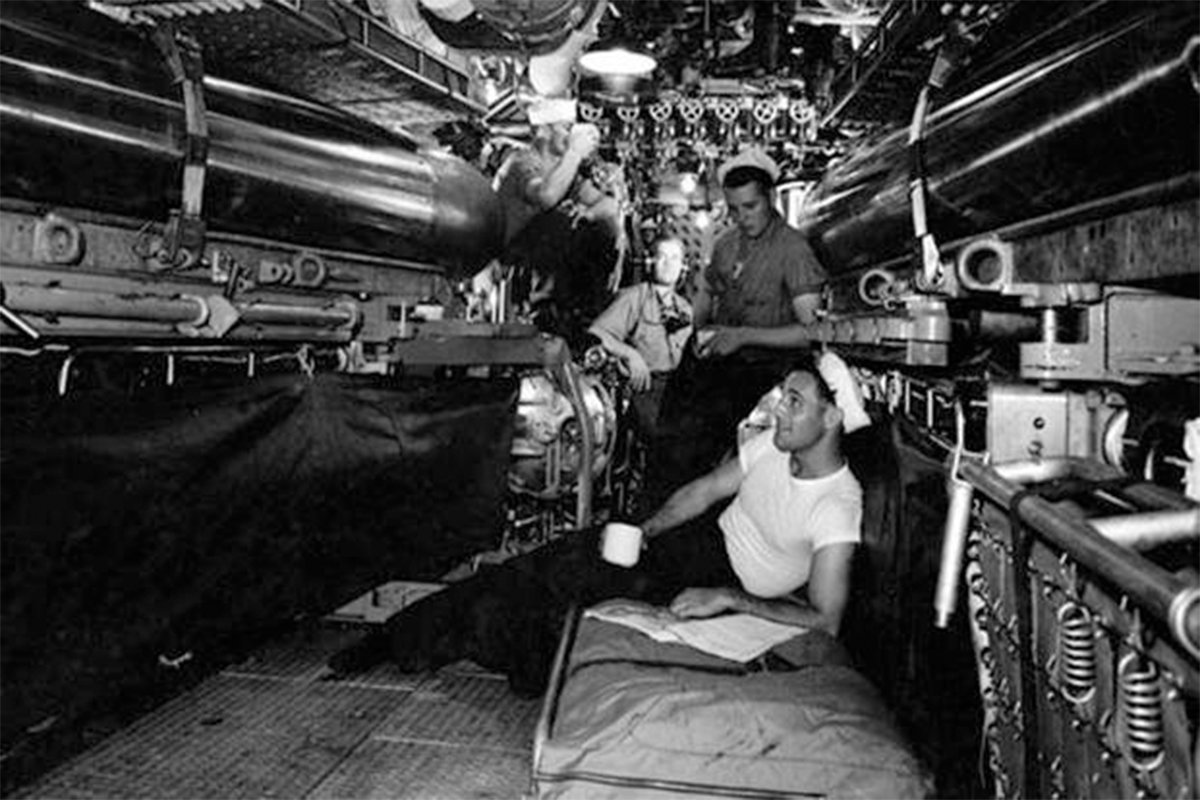Coffee Rationing Began on This Day 79 Years Ago — And It Might Have Won World War II

Coffee was added to the list of items rationed in the United States on Nov. 29, 1942. Photo by Mike Kenneally, courtesy of Unsplash. Composite by Coffee or Die Magazine.
On Nov. 29, 1942, the United States implemented coffee rationing, limiting households to the equivalent of one cup per day.
But the Axis powers were cut off from the caffeinated beverage for much longer, which some historians think made a difference on the battlefield.
“You could argue that coffee is something that helped influence the victory of the democracies in World War II because we had it and the Axis didn’t,” Thomas Czekanski, senior curator at The National WWII Museum, told Coffee or Die Magazine.
As with much of the rationing in the United States, the scarcity of basic goods wasn’t the problem. Latin American countries were producing record amounts of coffee during the war. Instead, rationing aimed for a fair distribution of resources among all citizens and prioritizing the military for certain raw materials and shipping resources.

During rationing, American families were allowed just 1 pound of coffee every five weeks, which amounted to less than a cup per day. A Nov. 30, 1942, article in Life magazine offered tips on “stretching” coffee rations to last longer. “Double dripping,” or reusing grounds to make watery cups of Joe, later became known as “Roosevelt coffee,” named after the president.
Fortunately, coffee was rationed for less than a year and taken off the list in July 1943.
German citizens weren’t so lucky. The Allied powers controlled much of the world’s coffee and prevented Germany from importing any, so Germany was stuck with ersatz (German for “substitute”) coffee. Ersatz coffee used other organic materials — often acorns — to replace real coffee.
“Sort of like the Confederacy in the Civil War, you roast acorns and grind them,” Czekanski said. Chicory coffee, one of the substitutes coffee devotees turned to during rationing, remains popular in many places today, including New Orleans, where Czekanski lives.
Japan, on the other hand, voluntarily cut itself off from the caffeinated drink even before the war.
“They apparently regarded coffee as a Western influence, and they didn’t want to have Western influence,” Czekanski said.
Read Next: A Brief History of Instant Coffee

Hannah Ray Lambert is a former staff writer for Coffee or Die who previously covered everything from murder trials to high school trap shooting teams. She spent several months getting tear gassed during the 2020-2021 civil unrest in Portland, Oregon. When she’s not working, Hannah enjoys hiking, reading, and talking about authors and books on her podcast Between Lewis and Lovecraft.
BRCC and Bad Moon Print Press team up for an exclusive, limited-edition T-shirt design!
BRCC partners with Team Room Design for an exclusive T-shirt release!
Thirty Seconds Out has partnered with BRCC for an exclusive shirt design invoking the God of Winter.
Lucas O'Hara of Grizzly Forge has teamed up with BRCC for a badass, exclusive Shirt Club T-shirt design featuring his most popular knife and tiomahawk.
Coffee or Die sits down with one of the graphic designers behind Black Rifle Coffee's signature look and vibe.
Biden will award the Medal of Honor to a Vietnam War Army helicopter pilot who risked his life to save a reconnaissance team from almost certain death.
Ever wonder how much Jack Mandaville would f*ck sh*t up if he went back in time? The American Revolution didn't even see him coming.
A nearly 200-year-old West Point time capsule that at first appeared to yield little more than dust contains hidden treasure, the US Military Academy said.












